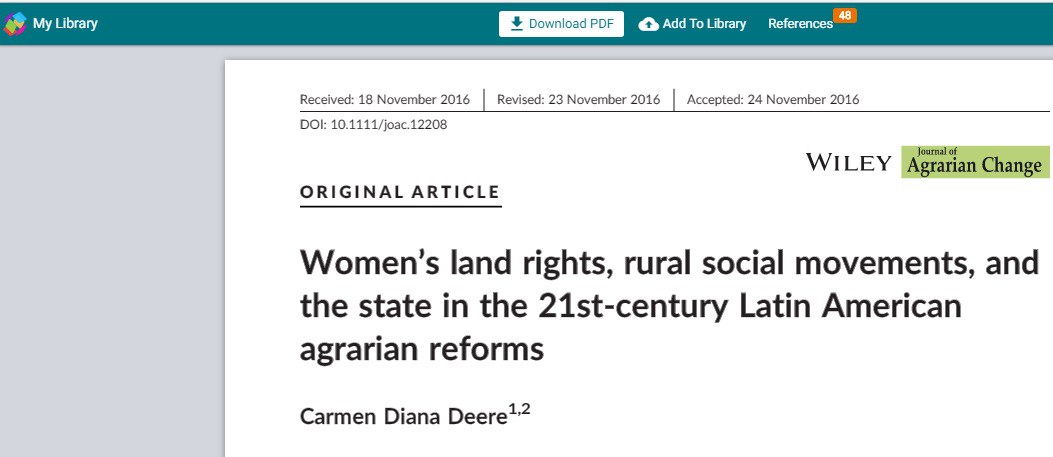Resource information
This paper addresses the disjuncture between women’s formal land rights and their attaining these in practice, examining the four agrarian reforms carried out by progressive governments after 2000 in Bolivia, Brazil, Ecuador, and Venezuela. It finds that while all four strengthened women’s formal land rights, only the reforms in Bolivia and Brazil resulted in a significant share and number of female beneficiaries. In both countries, strong national?level rural women’s movements were the main advocates behind women’s land rights in a context in which they formed part of the coalition that brought these regimes to power. In Bolivia, women have benefited principally through joint titling of land to couples in the country’s massive land regularization programme. Brazil’s reform has been the most redistributionary, and women have benefited through the priority given to female household heads as well as the mandatory joint allocation of land to couples in the agrarian reform settlements


